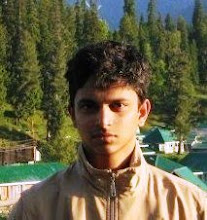Nigel Britto
His address is as impossible as his mission. To meet Stalin K, you have to tramp through a small jungle and huff up several steep steps to reach his den on an invisible hill, off the beach sprawl of Baga inGoa . From this tranquil coastal redoubt, the man who shall not be surnamed—he shed it twenty years ago because it was a marker of caste — wages a peaceful war for a more equitable society by making documentaries on inconvenient truths like caste and communalism.
His address is as impossible as his mission. To meet Stalin K, you have to tramp through a small jungle and huff up several steep steps to reach his den on an invisible hill, off the beach sprawl of Baga in
The 41-year-old activist’s long, untidy hair is that of a sadhu but his swagger would do Sir Vivian Richards proud. He may be from
Stalin’s engagement with the politics of the marginalised has its roots in his childhood. “I found it natural to empathise with the poor because I was one of them,” he says. His father was a playwright who didn’t make too much money and who wasn’t overly bothered about providing for the family. “We were not starving, but not affluent either,” says Stalin. “Everything was rationed in our house.”
This empathy translated into action in 1984, when a killer gas leaked out from the Union Carbide plant in Bhopal Nagpur Bhopal
Since his Bhopal
indeed.
In any case, his childhood was not an easy one. When he was three, his parents decided to split, and his mother had to slog in a factory until she got a job at ISRO. He says his Soviet name is the only thing his communist father gave him, hence he decided to stick with it. He grew up reading Dostoevsky and Trotsky (subsidized Russian literature was cheaper than Sidney Sheldon) and got quite used to being mistaken for a Christian. Although not a card-carrying comrade, he found the communist ideology ‘interesting’ and often gave up college camping trips to join tribals protesting atrocities against them. “Till today, I’m more comfortable with tribals,” he says, “be it those from the Narmada valley or the Eastern Shoshonis and Northern Arapohes of Wyoming
The other tribe that he enjoys spending time with is the young. Whether it is lecturing at some of the top schools in the world such as Harvard, Yale and IIM-A or replying to messages on Facebook, where 800 of his 1,200 friends are students, working with the young and still idealistic reaffirms his belief that like John Lennon, he may be a dreamer, but he’s not the only one.
But since ‘fictional romanticism’ had little appeal, he decided to do something concrete. Soon after college, he founded a non-profit organization called Drishti to use media as a tool to campaign for human rights. “It was in 1991, the year which saw the expansion of media from one TV channel to four,” he says. “Later, I realised that for most of the country, drinking water was more important than four channels.”
Still later, his understanding of disempowerment was to deepen. “When I asked some tribals whether they would rather have water or the right and means to say ‘I don’t have water’, most of them chose the latter.” He chose, therefore, to give them that voice by using his camera. His documentaries explore the entrenched systems of injustice and prejudice that have societal sanction and question the powerfully pervasive presence of an elite that would prefer the poor to speak no evil.
From Camp Goa East Godavari district — to enable them to make films on issues relevant to them.
Caste is the latest nettle that Stalin has grasped. His two award-winning films, India Untouched and Lesser Humans, both of which explore the unspeakable crime of untouchability, have swiveled the spotlight back on the lives of millions of Dalits who still suffer it every day. India Untouched is widely accepted as “the most comprehensive look at untouchability ever undertaken on film”. Instead of hammering the viewer with rhetoric, he allows the people to tell the story. In Rajasthan, Rajputs proudly proclaim that the police have to seek their permission before pursuing cases about Dalit atrocities. Leading Hindu scholars from Varanasi North India . The camera focuses on Dalits who say they are forced to sit at the back of the class while upper caste students sit in front. Then the camera swings to the upper caste students, who proudly confirm it. The teacher walks in and promptly says the students are lying. But now all the students, Brahmin and Dalit, gang up and say that it is the teacher who is lying. This is confirmed by parents standing around.
After seeing an ancient ugliness flourish in the midst of modernity, cynicism comes easy to Stalin. “India India
To the widely held middle-class belief that education is the only thing that can raise India
This article was first published on The Times of India’s Crest edition dated January 16, 2010.


No comments:
Post a Comment